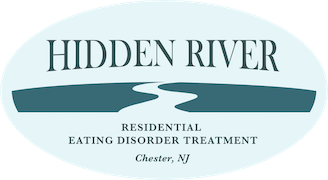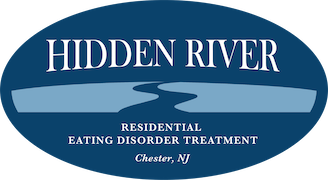For Parents: It’s Okay Not to Be Okay
For parents of children with eating disorders, it’s important to remember that it’s okay not to be okay. In many kids, their eating disorders develop slowly over time – changes that happen so subtly that it’s hard to notice, like the tide rising. For others, their eating disorders wash over them like a tsunami, and all of a sudden, they’re washed out to sea.
In either case, taking care of a child with an eating disorder can be overwhelming and challenging. There are treatment options to explore, books or articles to read to learn more about the topic, and hard conversations to have with your child — often all happening concurrently. It can be a lot to handle, and that’s why sometimes it’s important to accept that you’re not okay. Taking that idea one step further, it’s okay not to be okay. The situation that you’re in is uncharted territory that is filled with ups and downs.
As your child begins their recovery journey from an eating disorder, it’s essential that you accept that they’re struggling.
It’s also important for you to accept that you’re struggling with the situation. You likely won’t feel at peace with your child’s eating disorder. However, it’s possible to feel at peace with the fact that the eating disorder exists and that it’s interrupting your child’s life in a major way.
Acceptance is a strong protective factor when facing mental health issues. One study found that when participants accepted their complete lack of control – over what happened to them, their thoughts, and their feelings – they showed better mental health. In fact, the more acceptance they showed, the greater their mental health. (1)
A therapy approach called Acceptance and Commitment Therapy (ACT) emphasizes the role of acceptance in mental health. ACT’s efficacy has been shown in groups of parents, including parents whose children faced neurodevelopmental disorders, chronic pain, or other health issues. (2)
Next, it’s imperative to find the right treatment plan for your child.
Accepting that your child has an eating disorder and that you have little control over the situation is a step in the right direction, even if that step feels unimaginably huge. Finding the right treatment plan for your child is one way to feel that you’re taking an important step and believing that the right treatment program or team determined by the severity of your child’s eating disorder often brings feelings of relief.
When looking into treatment programs, it’s helpful to find a place that offers comprehensive approaches to recovery. Consider the opportunity to work with mental health professionals as well as doctors, nurses, dieticians, or physiologists. You might also look into finding a place that incorporates families into treatment, giving you the education, skills, and tools you need to help your child in the best way possible.
Hidden River offers young girls and women individual therapy, family therapy, nutrition and culinary skills, and school programs on our peaceful, nature-filled campus. Recovery is more than simply adhering to healthy eating behaviors. It’s about gaining self awareness, obtaining education, growing confidence and building healthy and loving relationships with others while addressing the root of the issues.
If you would like to explore Hidden River’s services to see if we’re the right fit for your child, contact us today.
Lastly, you have to take care of yourself too.
It’s fair to say that you’ll never feel okay with your child having an eating disorder, which is why you’ve jumped into action to help them recover in an effective, lasting way. While accepting the situation might feel like acquiescing to it, it’s vital to focus on your own mental health throughout your child’s recovery.
As you’re helping your child, be sure to take care of yourself too, whether that’s finding your own mental health professional to work with, leaning on your support network, or spending a few hours each week meeting your own needs. By doing so, you’ll have the endurance to remain strong for your child as they face the challenges of recovery from an eating disorder.
For more information about eating disorder treatment at Hidden River, please visit our website. We are currently accepting new clients. To contact the Admissions team at Hidden River, please call (833) 307-4837 or email info@hiddenriverhealing.com.
References
- Bond, F. W., & Bunce, D. (2003). The Role of Acceptance and Job Control in Mental Health, Job Satisfaction, and Work Performance. Journal of Applied Psychology, 88(6), 1057–1067.
- Byrne, G., Ghrada, A.N, O’Mahony, T., Brennan, E. (2020). A systematic review of the use of acceptance and commitment therapy in supporting parents. Psychology and Psychotherapy, 94(52), 378-407.






Leave a Reply
You must be logged in to post a comment.